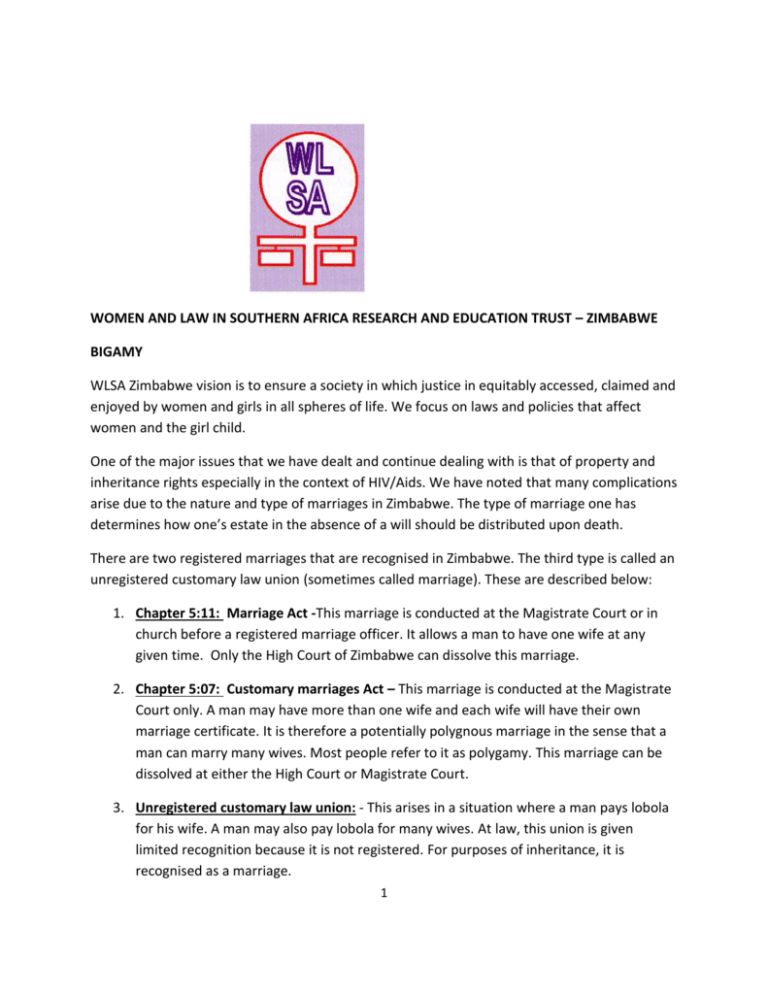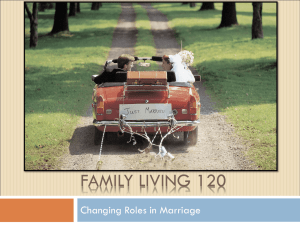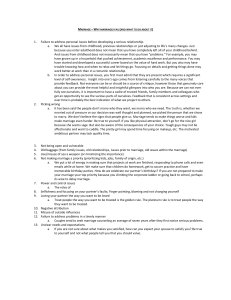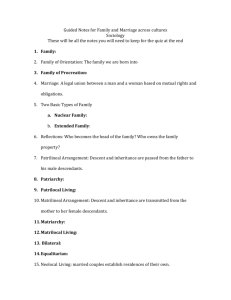get this document here - Women and Law in Southern Africa
advertisement

WOMEN AND LAW IN SOUTHERN AFRICA RESEARCH AND EDUCATION TRUST – ZIMBABWE BIGAMY WLSA Zimbabwe vision is to ensure a society in which justice in equitably accessed, claimed and enjoyed by women and girls in all spheres of life. We focus on laws and policies that affect women and the girl child. One of the major issues that we have dealt and continue dealing with is that of property and inheritance rights especially in the context of HIV/Aids. We have noted that many complications arise due to the nature and type of marriages in Zimbabwe. The type of marriage one has determines how one’s estate in the absence of a will should be distributed upon death. There are two registered marriages that are recognised in Zimbabwe. The third type is called an unregistered customary law union (sometimes called marriage). These are described below: 1. Chapter 5:11: Marriage Act -This marriage is conducted at the Magistrate Court or in church before a registered marriage officer. It allows a man to have one wife at any given time. Only the High Court of Zimbabwe can dissolve this marriage. 2. Chapter 5:07: Customary marriages Act – This marriage is conducted at the Magistrate Court only. A man may have more than one wife and each wife will have their own marriage certificate. It is therefore a potentially polygnous marriage in the sense that a man can marry many wives. Most people refer to it as polygamy. This marriage can be dissolved at either the High Court or Magistrate Court. 3. Unregistered customary law union: - This arises in a situation where a man pays lobola for his wife. A man may also pay lobola for many wives. At law, this union is given limited recognition because it is not registered. For purposes of inheritance, it is recognised as a marriage. 1 We have also noted that there is an increase in the crime of bigamy. The Criminal Law (Codification and Reform Act) describes bigamy as any one of the following situations: 1. A person who whilst married to another in terms of Chapter 5:11 and not having divorced, goes on to marry another person either under chapter 5:11 or in terms of Chapter 5:07 or in an unregistered customary law union. 2. A man who whilst still married to more than one wife either in terms of Chapter 5:07 or an unregistered customary law union and the marriages are still in existence goes on to marry someone else in terms of Chapter 5:11. 3. A person who being married to someone in terms of Chapter 5:07 or an unregistered customary law union though they may have only one spouse at the time and have not dissolved the marriage or union but they go on to marry someone else not in terms of Chapter 5:07 or an unregistered customary law union as permitted by the law but under Chapter 5:11 Bigamy is a crime that attracts a fine, imprisonment or both. Bigamy also complicates inheritance matters as the many spouses some of whom may not be legally recognised compete for the property left behind by a deceased person. Complications also arise when relatives side with one party despite that fact that the law does not recognise that party’s marriage with the deceased. WLSA has also handled cases where some people believe that a marriage certificate is a mere piece of paper. This is not the case. A marriage certificate has legal consequences and it is extremely important that if married persons want to divorce, they do so though the courts to finality, that is, they should obtain an order of divorce from the courts. If one party dies without the marriage having been dissolved by the court even though they may have been in the process of divorce, the law recognises the other party in the marriage as the surviving spouse. For more information on property and inheritance rights please visit our offices at 16 Lawson Avenue, Milton Park, Harare or call us on 253001/2/3 or 2928337 or e mail ussly@wlsazim.co.zw, gettie@wlsazim.co.zw , dorcas@wlsazim.co.zw or you can visit our website on www.wlsazim.co.zw . We would also like to hear your views on property and inheritance rights. WOMEN AND LAW IN SOUTHERN AFRICA, MAKING THE LAW WORK FOR WOMEN 2







